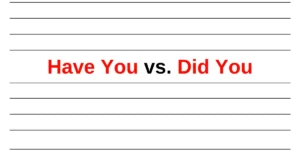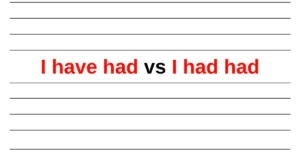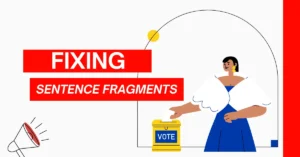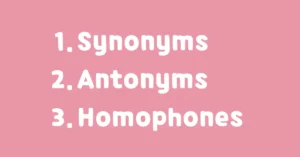Speaking: Want to sound more confident and smarter when you speak? If yes, then you’re in the right place! Today, we’re going to learn 10 powerful words that will help you express yourself in a better and more interesting way. These words are easy to learn, but they will make your English sound much more exciting and clear.
10 Powerful Words for Speaking
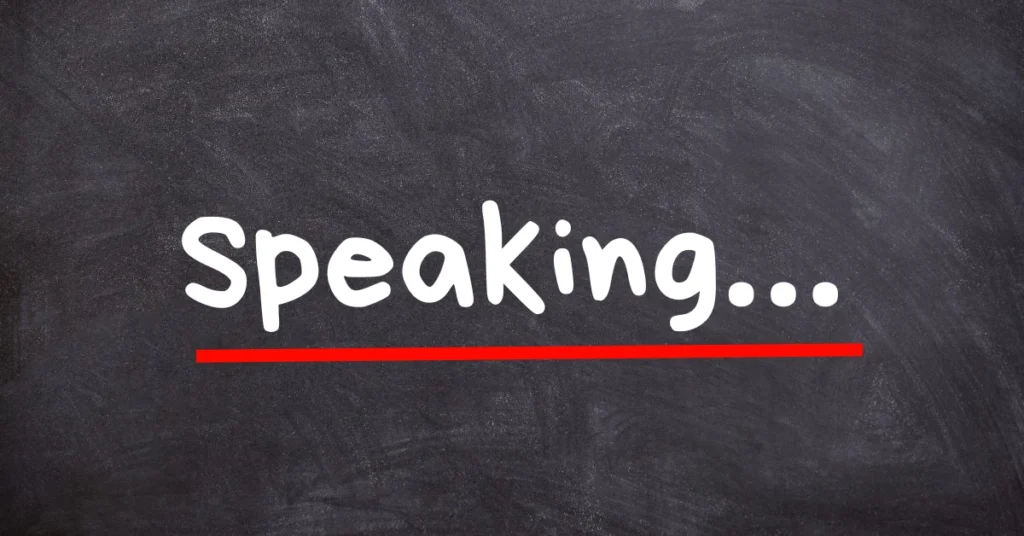
Whether you’re speaking to friends, in class, or at work, using these words will make you stand out! Ready to take your speaking skills to the next level? Let’s dive in!
1. Stick with it → Be tenacious
Instead of saying “stick with it,” try using tenacious. This word reflects the quality of being persistent, determined, and never giving up, no matter how difficult the journey is.
Example: “Her tenacious attitude ensured she finished the project on time.”
2. Lucky find → A stroke of serendipity
When you come across something unexpectedly wonderful, it’s more than just a “lucky find.” It’s a stroke of serendipity, a beautiful coincidence that brings you something amazing without planning for it.
Read: 17 Advanced English Phrases for Everyday Speaking
Example: “That unexpected email was truly a stroke of serendipity.”
3. Calm → Equanimity
Equanimity refers to mental calmness and composure, especially in difficult situations. It’s not just about staying cool; it’s about maintaining balance and peace of mind under pressure.
Example: “He handled the crisis with remarkable equanimity.”
4. Predictive → Prescient
When something is predictive, it’s foresight. But when you say something is prescient, you’re highlighting someone’s ability to predict or sense future events with accuracy.
Example: “Her prescient advice helped us avoid the pitfalls ahead.”
5. Detailed → Nuanced
Instead of describing something as just detailed, you can elevate it by calling it nuanced, which means possessing subtle distinctions that add depth and complexity to understanding.
Example: “The nuanced approach to the topic revealed its true depth.”
6. Get out of someone → Elicit
To elicit means to draw out or bring forth a response or reaction from someone, especially in a skillful or intentional way.
Example: “The interviewer was able to elicit candid responses from the candidates.”
7. Unforgettable → Indelible
When something is unforgettable, it has left a permanent mark. Indelible takes it a step further, implying that it cannot be erased or forgotten.
Example: “That was an indelible moment in my life.”
8. Unlimited → Unfettered
If you want to say something is without limits, unfettered is the perfect word. It suggests a sense of freedom and the absence of constraints.
Example: “Her creativity was unfettered by any traditional norms.”
9. Charming → Winsome
A person can be charming, but winsome takes it up a notch. It refers to someone who is attractively charming in a sweet, endearing way.
Read: Double Negatives: Basic Rules of Speaking English
Example: “The winsome smile of the child melted everyone’s heart.”
10. Well-spoken → Eloquent
Instead of saying someone is “well-spoken,” consider using eloquent. This describes a person who speaks with fluency, elegance, and persuasive power.
Example: “His eloquent speech moved the audience to tears.”
Wrap-Up
Incorporating these words into your speech will not only make you sound more sophisticated but will also enhance your ability to express complex thoughts with ease. Keep practicing, and watch your vocabulary and communication skills soar to new heights!
Explore More
- Well vs. Good: What’s the Difference and When to Use Each
 What is the difference between good and well. These two words might seem similar, but they’re used in …
What is the difference between good and well. These two words might seem similar, but they’re used in … - Have You vs. Did You: What’s the Real Difference?
 Imagine you’re meeting a friend in the evening, and you want to ask if they …
Imagine you’re meeting a friend in the evening, and you want to ask if they … - Difference Between I have had and I had had
 Have you ever found yourself tangled in the web of “I have had” and “I …
Have you ever found yourself tangled in the web of “I have had” and “I … - Understanding and Fixing Sentence Fragments
 In this lesson, you will be learning about sentence fragments. Ever written something that looks like …
In this lesson, you will be learning about sentence fragments. Ever written something that looks like … - Synonyms, Antonyms, and Homophones: Boost Your Vocabulary!
 Are you ready to take your English speaking skills to the next level? One of …
Are you ready to take your English speaking skills to the next level? One of …

